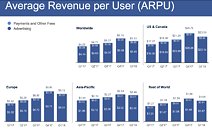In separate interviews with Vice Motherboard, Viceroy Research, the AMD stock
short-seller that posted an obituary of AMD, and CTS-Labs, which claims AMD "Zen" architecture is infested with
glaring security vulnerabilities; crystallized their financial positions on "AMD Flaws." CTS-Labs and Viceroy Research each went on record to state that they have no financial relationship with each other. "Viceroy [Research] is not a client of CTS[-Labs], and CTS[-Labs] did not send its research to Viceroy [Research]," said Yaron Luk, co-founder of CTS-Labs, but confirmed that his company's business-model involves sharing their cyber-security research with stock research firms (like Viceroy Research), which probably use the information to short tech stocks (a highly unethical though not yet illegal practice). "We are a for-profit company that gets paid for its research by a variety of research clients," Luk stated.
It's becoming increasingly clear that entities other than AMD had access to CTS-Labs' work, at least the report, if not the "
research package," greater than 24 hours before public disclosure (i.e. before even AMD could see it), and one such entity, referred to as an "anonymous tipster" in the Motherboard report, "shared" the information with Viceroy Research, which quickly bought itself a shorting position against the AMD stock, and posted a 25-page doomsaying report to accelerate the fall of AMD stock (which
isn't quite happening at the time of writing this post). Viceroy Research is brazen about its position on the matter. "We haven't hidden the fact that we short the stock," said Fraser Perring, founder of Viceroy. Cybersecurity guru Alex Stamos, who is associated with Facebook, without taking names, tweeted an ominous warning that short-selling fueled security research "is going to end in tears. Hopefully due to lost money, and not because naive researchers go to prison." Does this foretell new regulation by the SEC that renders Viceroy's position into a black-hole for their money? The SEC has taken a
great interest in the behavior of tech corporations and investors around cyber-security research.



















































